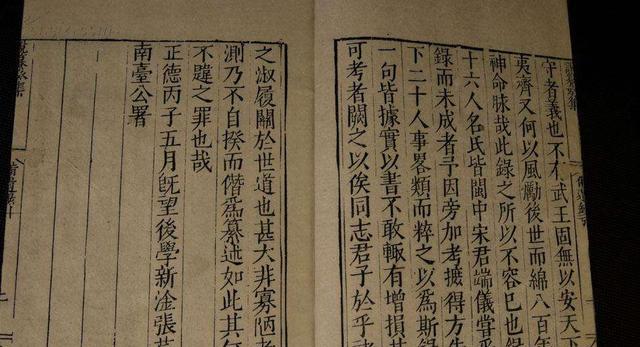The development of the Chinese nation has a history of more than 5,000 years, and in this long historical time, we can record a lot of historical materials. Only by recording all these historical materials can future generations understand the development track of China's history. These historical materials are extremely important for people who are eager to understand history today, but in ancient times, these historical materials became a burden on the imperial court. In order to lighten the burden on his body, the minister of the DPRK and the Central Government also burned all these historical materials, and one precious history after another disappeared into flames and turned into ashes. And 10 kilograms of rice can be exchanged for a sack of waste, even cultural relics dealers are disgusted, but now it is worth a lot.

All the events in the country will be recorded in detail in each dynasty and generation in order to provide information for future generations, and the Qing Dynasty also paid great attention to history, in order to be able to safely protect these historical materials, there was also a special management agency called "Cabinet Treasury", with special personnel to clean and maintain. But how easy it is to really record these historical records, the place of the cabinet treasury is originally small, the Qing Dynasty yangyang big country will happen every day new things, and soon there will be more historical records in the cabinet and there will be no place to put it down. At the beginning, the special management personnel will arrange these historical records in an orderly manner, but over time, they will inevitably have the psychology of irritability and disgust, and directly pile up these important historical records together.
After tinkering, the archives could no longer be put down, and in order to solve this situation and reduce the burden on the officials, the minister proposed that all these documents be burned, and with the consent of the emperor, most of the historical records were eventually reduced to ashes. Later, the Qing government completely collapsed, the Beiyang government officially took over the management of the cabinet treasury, these piles of archives became a burden on the Beiyang government, but could not bear to burn it, the Beiyang government at that time had an extremely difficult life, so they came up with a roundabout tactic. They divided the archives into 8,000 sacks, all of which added up to a total of 150,000 pounds.
They told the whole world that as long as someone was willing to spend money to buy it, one silver dollar could buy two sacks of literature. According to the price at that time, a silver dollar could only be exchanged for 20 kilograms of rice, so according to the Beiyang government's sales law, 10 kilograms of rice could be exchanged for a sack of literature. These documents are all extremely important historical documents at that time, which can not only provide substantive information for the study of history, but also are important historical relics in China, which is a very rare treasure. But such treasures were sold at such a low price by the Beiyang government. Under the circumstances at that time, these documents were indeed not very valuable, and even the cultural relics dealers who usually loved cultural relics would avoid these documents.
In the end, all these documents were sold, and the Beiyang government earned a total of 4,000 silver yuan. The person who bought most of the literature in the hands of the Beiyang government was Luo Zhenyu. However, luo Zhenyu directly bought it for 12,000 oceans after learning about this matter, and then transferred it to Li Shengxuan, the head of the embassy, in 1924, and in 1929 Li Shengxuan handed over all these documents to the Central Institute of History. Nowadays, all these documents are treasured by the museum's collectors, which have high historical research value, and it is not an exaggeration to say that they are treasures of the town and country.
Historical documents are extremely important cultural relics in our country, especially in the face of a country with a history of thousands of years, history is an extremely important thing, and the protection of historical documents can well confirm the evidence of the true existence of our country, and at the same time provide important information for future generations to study history and culture. The right to create history lies in the hands of the ancestors, and the right to continue and protect history is in the hands of every son and daughter of China, as the descendants of the country, protecting history is the responsibility that each of us should bear.